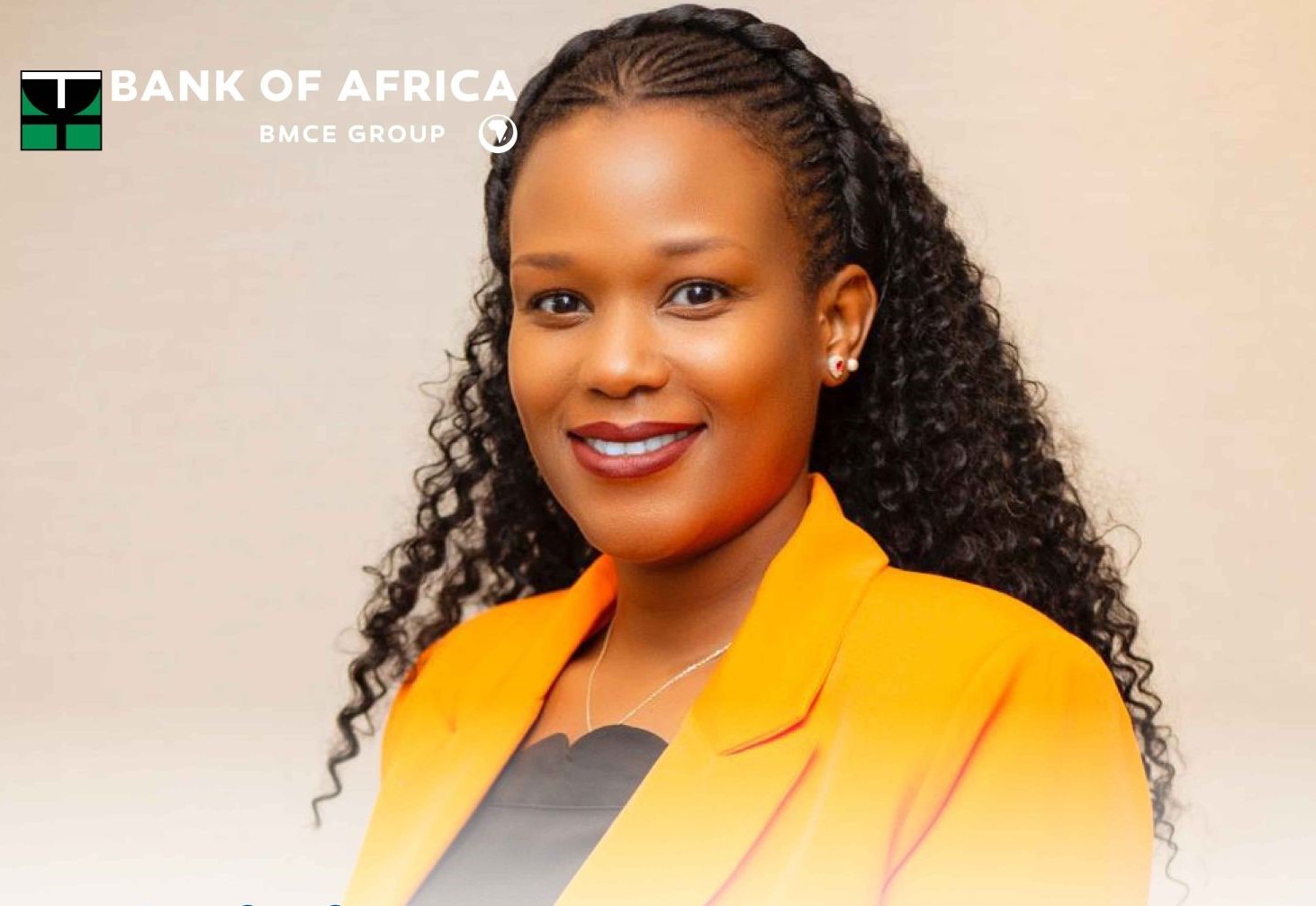A seasoned banker with over 17 years’ experience in financial services, her appointment took effect on May 6. Prior to this, Esther Cecil Maruma was Head of Global Markets in Institutional and Investment Banking at Absa Bank Tanzania (formerly Barclays Bank).
Bank of Africa Tanzania is part of the BMCE Group, which operates in 18 African countries: Benin, Burkina Faso, Burundi, Côte d’Ivoire, Djibouti, DRC, Ethiopia, France, Ghana, Kenya, Madagascar, Mali, Niger, Rwanda, Senegal, Tanzania, Togo and Uganda. Since 2010, the Dakar-based Bank of Africa Group has been majority-owned by BMCE Bank, Morocco’s second-largest private bank.
In her new position, Esther Cecil Maruma is responsible for the strategic direction of Bank Of Africa Tanzania, overseeing the bank’s operations and ensuring its financial success. The new Managing Director is an expert in strategic planning and execution, financial management, risk management, customer experience management, team development, as well as women’s empowerment and diversity advocacy.
Esther Cecil Maruma holds a B.Sc. in Environmental Sciences and Management from Sokoine University of Agriculture (Tanzania) and an MBA (Master of Business Administration) in Finance from the Eastern and Southern African Management Institute (ESAMI). She worked for Absa for 15 years, from 2009 to 2024, where she held a number of positions, including National Treasurer and Head of Markets; Vice President : Head of Corporate Markets and Institutional Banking; National Head of Markets and Head of Corporate Banking as well as Head of Global Markets in Institutional and Investment Banking, a position she held prior to her appointment as Managing Director of Bank of Africa Tanzania.
Esther Cecil Maruma began her career in 2008 with Stanbic Bank Tanzania as a treasury broker in global markets. Indeed, the banker embarked on her trading career at a very early age, a field of finance that was long considered the preserve of men. But she has managed to succeed in this sector.

A career started out of necessity
Esther Cecil Maruma’s career in finance began out of necessity. After studying environmental sciences and management at Sokoine University of Agriculture in Morogoro, Tanzania, banking was not part of her career plan. However, in her final year at university, she became pregnant with her first child. “My parents wanted me to stay with them in Moshi until my daughter was at least a year old, but I feared I would never leave home if I didn’t start work immediately,” she reported in a World Bank document published in 2021 entitled “Tanzanian Women Leading Financial Services: A Review of Gender Equality in Tanzania’s Financial Services Sector”.
So Esther Cecil Maruma searched for opportunities in Dar es Salaam, and came across an advert for a graduate training program at Stanbic Bank Tanzania. Nearly 400 people applied, and Esther Cecil Maruma was one of four selected. She settled in Dar es Salaam with her daughter and a nanny.
Stanbic’s training program included rotations in all the bank’s departments to learn the different functions of retail and investment banking. Esther Maruma’s third rotation was in the Global Markets department, where she worked long hours, meticulously completing the daily trading report. “It took me some time, at first, because I wanted to be ready in case anyone asked me questions. But, over time, as I gained understanding, I transformed the daily report from a transaction tracker, to a report that also covered productivity and team performance. When it was time for me to take up a fulltime position, I knew so much about trading that I was able to start there right away”,she explained in the World Bank document.

Strategy for career advancement
Esther’s effort and initiative, it is reported, have been key factors in her career success, and over the years she has become very strategic about her career progression. “My success comes from thinking about what role I want next, what competencies are needed, and what I need to learn to get there. Over time, networking became an additional factor, but in the beginning, it was about knowing the role I wanted and becoming competitive to get it. I did this by speaking to people in the roles I wanted, shadowing them, and asking them to coach me. This way, when a space opened up, everyone already saw me coming. In essence, I created a natural succession plan that was clear to everyone. Some could say I was lucky that positions opened up, but I believe that you must prepare well for what you want. You can’t just want something from a distance. I subscribe to the motto: ‘Luck is opportunity meeting preparation.’ There was no other way for a no-name girl like me from Moshi to succeed.”
Money is no criterion for promotion
When it comes to remuneration, Esther Cecil Maruma speaks of the advantages of being in the global markets sector. “Trading is very transactional, which makes it easy to know how you are doing, and to defend performance-based compensation. “Over time, as I moved from a trading role into a supervisory role as the accountable executive for Global Markets, the value of my contribution included my ability to manage people, both inside and outside my team.”
Today, money is not the only motivation when Esther is considering new opportunities. “For me, there are two factors: whether the role is a promotion, with additional challenging responsibilities that are in line with my development, and whether the organization and its values are aligned with mine.”

Women play multiple roles outside work
Although the financial sector is still dominated by men, Esther Maruma has never let her gender stand in the way of her career. “I don’t believe a woman should try to act like a man in the business world. We are different, and in those differences lie our assets, strengths and abilities, all of which are essential to the success of an organization.”
But, it is reported, as Esther considers the experiences that other women have in the financial sector, she acknowledges that the biggest challenges to success are the multiple roles women play outside the workplace, as mothers, wives, caregivers for elderly relatives, and community members. As a single mother of two children, Esther plays most of these roles, and she manages them by drawing on her resource management, budgeting, and business skills.. “I have a team of incredible people around me at work and at home, and I have a contingency plan for my team should things go wrong. I have domestic staff, who I rely on for day-to-day childcare, basic housekeeping, and errands. I also have my very best friend who can step in when I am out of the country for work. The only things I do not outsource are homework, disciplining, and bedtime reading; even when I am travelling, those are mommy’s jobs. Beyond my ‘village’ of employees and loved ones, I have relationships with key vendors like cooking gas and farm produce providers who deliver. Moreover, should the system fail, I will leave work to be there, and my colleagues and bosses are supportive of that. In short, I have accepted that I cannot do this alone. I cannot be everywhere at once, and the moment when I stopped feeling guilty about this, I made better choices. When you have people around you that understand the value of your sacrifice, they allow you to be your best at work and at home. I pray that every woman gets such good support.” she told the World Bank.



